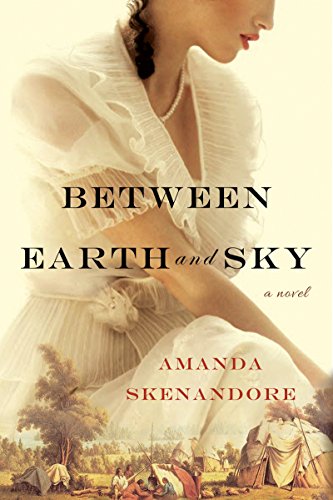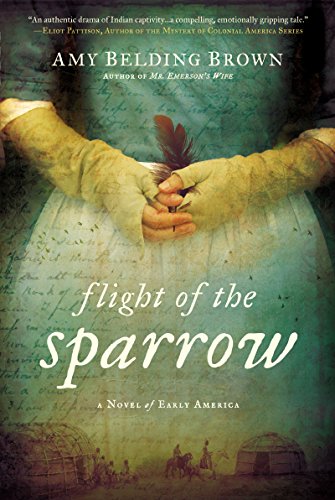Release Date: April 24, 2018
A slow paced but poignant exploration of the treatment of Native Americans in history from the point of view of a young, coming of age girl. Alma, the main character, is a young white girl in a unique position of growing up among Native American children at her father's boarding school for "civilizing" them. Naturally, she befriends them, and like them, she is caught between two worlds, but does she truly understand them and their situation? As an adult, she has to the face the ghosts of this past.
I really enjoyed the way this story was told, set in two time periods but told in parallel to each other. I know lots of book have used this method before, but few do it quite so well as this one. It's slow paced, but never boring. The chapters set in 1906 hint and foreshadow at something significant that happened in the past, while the chapters set in the past slowly evolve to show you what happened. Eventually, the past catches up and it all comes to a head.
Beautifully written with realistic, three dimensional, sympathetic characters, and complex relationships, this is easily the best novel on this subject matter I've read so far. I definitely look forward to what this debut author has to offer in the future.
Advanced review copy from publisher via NetGalley. My opinions are my own.
Showing posts with label native american. Show all posts
Showing posts with label native american. Show all posts
Friday, March 2, 2018
Friday, July 21, 2017
Review: Flight of the Sparrow
This was a well written and very interesting novel about the ordeal of the historical Mary Rowlandson, who was captured by Native Americans and held captive for nearly 3 months before she was ransomed back to her husband.
Overall, I thought it was a fascinating story and subject matter, told in third person present tense, but my main complaint was that I found it hard to believe Mary would want to stay with the Native Americans after only being with them for 3 months. To be fair, her transformation didn't feel abrupt or rushed in the narrative of the book, but when I realized everything that had happened while she was with the Native Americans happened within 3 months, it didn't feel like enough time had passed for her to change so greatly, unless maybe she was suffering from Stockholm Syndrome (and it didn't seem like that was the author's intention). Particularly because Mary admits that she only had one friend in the entire Native American camp, why would you want to stay in a community where you don't exactly have friends? I understand she ironically enjoyed freedoms as a slave to the Native Americans that she felt couldn't in Puritan society, but also important to psychological health is friendship, and a human connection, which she admitted herself she only found with one person. If you only have one friend in a whole community, wouldn't you feel more like an outcast? Why would you want to stay in such a place? I also understand that she learned to adapt to their culture to survive, and that allowed her to learn and grow as a person, but adapting to a place doesn't necessarily mean that's where you want to remain. Not after only 3 months, anyway.
Regardless, it was a good story and I was constantly wanting to know what would happen next. I myself have ancestors who were attacked and taken hostage by Native Americans, so it allowed me some insight into what they might have experienced.
Overall, I thought it was a fascinating story and subject matter, told in third person present tense, but my main complaint was that I found it hard to believe Mary would want to stay with the Native Americans after only being with them for 3 months. To be fair, her transformation didn't feel abrupt or rushed in the narrative of the book, but when I realized everything that had happened while she was with the Native Americans happened within 3 months, it didn't feel like enough time had passed for her to change so greatly, unless maybe she was suffering from Stockholm Syndrome (and it didn't seem like that was the author's intention). Particularly because Mary admits that she only had one friend in the entire Native American camp, why would you want to stay in a community where you don't exactly have friends? I understand she ironically enjoyed freedoms as a slave to the Native Americans that she felt couldn't in Puritan society, but also important to psychological health is friendship, and a human connection, which she admitted herself she only found with one person. If you only have one friend in a whole community, wouldn't you feel more like an outcast? Why would you want to stay in such a place? I also understand that she learned to adapt to their culture to survive, and that allowed her to learn and grow as a person, but adapting to a place doesn't necessarily mean that's where you want to remain. Not after only 3 months, anyway.
Regardless, it was a good story and I was constantly wanting to know what would happen next. I myself have ancestors who were attacked and taken hostage by Native Americans, so it allowed me some insight into what they might have experienced.
Subscribe to:
Posts (Atom)





